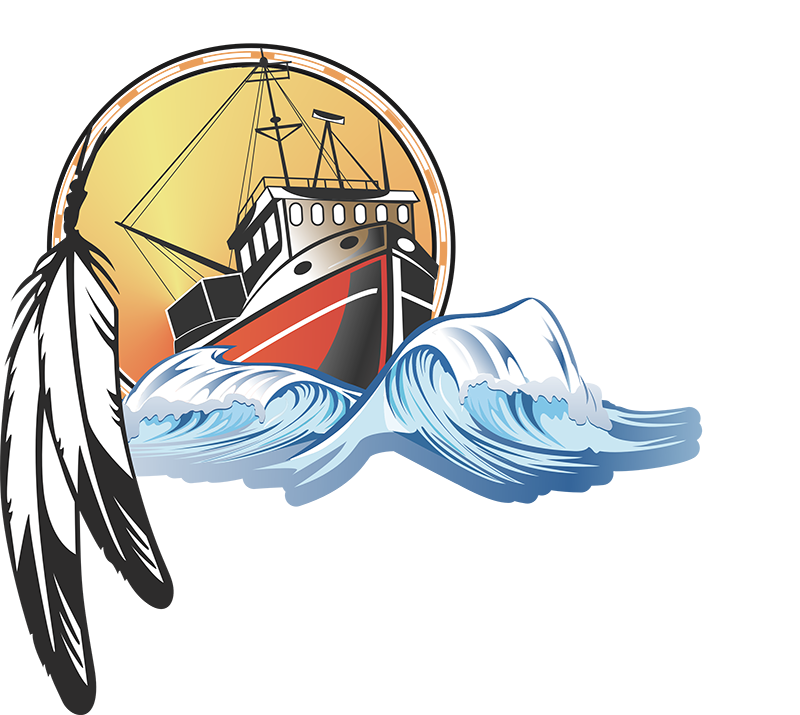Completed projects
See here our completed projects in recent years. For any questions or requests for information, do not hesitate to contact us.
Completed Projects Management, conservation and diversification
Documentation of the Mi’gmaq and Maliseet Traditional Knowledge on Species at Risk of the Estuary and Gulf of St. Lawrence
Project description
2014-2015
The goal of this study was to document the historical presence of species at risk of the marine St. Lawrence, their critical habitats, changes in their population and abundance, as well as their importance in the Mi’gmaq and Wolastoqey cultures. Recommendations were sought from participants regarding the management of conservation of these species and their habitats. The study allowed the collection of useful information for the conservation, management and recovery of these species at risk in the Estuary and the Gulf of St. Lawrence.
Documentation of the Mi’gmaq and Maliseet Traditional Knowledge of American Bank Proposed Marine Protected Area
Project description
2015-2016
The goal of this study was to document the Mi’gmaq and Wolastoqey Ecological Knowledge about a proposed marine protected area, located east of Percé and Gaspé, known as the American Bank. Questions related to your experience and knowledge about the area and its surroundings as well as about its cultural importance. We also sought recommendations in terms of conservation measures and management for the proposed marine protected area (MPA).
Characterization of the habitat and presence of juvenile Striped Bass (Morone saxatilis) along the south shore of the Gaspé Peninsula
Project description
2016-2018
The recent increase in the striped bass population in the southern Gulf has raised many questions regarding the potential existence of spawning grounds in our Gaspé waters. In order to better understand these new visitors, this study aimed to determine whether there is the presence of juvenile striped bass along the southern Gaspé coast and to characterize their habitat. The project increased our capacity to acquire scientific data on coastal aquatic fauna and striped bass habitat via inventories along the southern coast by dedicated field teams from Gespeg and Gesgapegiag. Ultimately, the completion of this project served to improve our understanding of the use of the Gaspé coastline by striped bass in the southern Gulf, in addition to acquiring data that could help assess possible interactions between the striped bass population and native salmonids in the Gaspé. Although no spawning site was identified, this study made it possible to characterize the presence of striped bass in different places as well as the presence and relative abundance of other species at risk. This is a step towards the recovery of the striped bass population of the southern Gulf and the protection of its habitat.
Whelk Experimental Fishery for the Gesgapegiag community
Project description
2013-2014
At the request of the Mi’gmaq community of Gesgapegiag, MWIFMA conducted, between the fall of 2013 and 2014, three exploratory whelk fishing campaigns between New Richmond and Bonaventure. The main objective of the project was to assess the abundance of whelk in the western part of zone 14. In addition, we conducted this fishery to:
- Find the appropriate model of whelk trap for the western portion of zone 14;
- Help the Gesgapegiag community in making the decision as to the relevance of organizing a recurrent commercial fishery;
- Know the bycatch associated with this fishery and recommend work to improve the selectivity of the fishing gear, if applicable.
The first two campaigns revealed that it would be more practical for fishermen in this area to use large individual cages (42 inches in diameter), similar to the ones they use for rock crab fishing. A third campaign was conducted between September 2 and 30, 2014 with 75 individual traps designed for the project. During this period, 112 kg of whelk, for more than 350 kg of bycatch (mainly rock crab) were caught. The largest catch was 39 kg of whelk, six nautical miles from the Bonaventure wharf, which requires approximately 60 minutes of navigation to get there. In light of these results, it was concluded that whelk fishing in the western portion of Chaleur Bay was not a commercially viable activity for the community of Gesgapegiag.
Completed projects Other
Seal handling and processing workshop
Project description
2019
MWIFMA participated in the organization of a workshop on seal handling and processing. This activity was initiated by the Comité sectoriel de main-d’œuvre des pêches maritimes (CSMOPM) and was aimed at hunters interested in engaging in commercial seal hunt in order to supply the meat, skin or oil markets. Training was offered in each of our communities during the week of November 11, 2019.
Gesgapegiag Seal Feast
Project description
2014
On September 22, 2014, MWIFMA hosted this event to raise awareness on seals and their various usages for all community members of Wolastoqiyik Wahsipekuk, Gespeg and Gesgapegiag.
